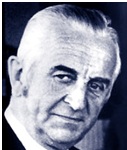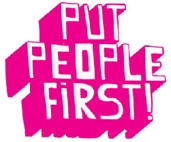|
 |
|
 |
BMW - Production, Quality and Innovation
BMW (Bayerische Motoren Werke, or Bavarian Motor Works)
Introduction Founded in 1916 with its headquarters in Munich, BMW:
Its smaller (Series 1) cars complement its more luxurious models (Series 3, 5, 6 and 7), X3, X5 and X6 4x4’s, the highly powered M3, M5 and M6 and the Z4 sports car. Its brand has a global reputation, symbolized by its famous circular logo with the blue and white colours of the Bavarian flag (pictured right).
What makes it
competitive? Engineering excellence. This is BMW’s key core competency which gives it the edge over its competitors:
Unlike them, it doesn’t have the financial muscle of a big company behind it, but the quality of its cars has made it the world’s best car company according to Fortune magazine. In 2013 it
BMW’s key car factories and what they make Leipzig, Germany (Series 1 and 3) Munich, Germany (Series 3 and engines) Regensburg, Germany (Series 1 and 3 and M3) Dingolfing, Germany - BMW’s biggest factory producing the Series 5, 6 and 7 (pictured right), M5 and M6. Spartanburg, USA (X3,X5, X6, Z4) Steyr, Austria (X3 and engines) Oxford, England (Mini, pictured right) Goodwood, England (Rolls-Royce cars) Rosslyn, South Africa (Series 3) Shenyang, China (joint venture) – Series 3 and 5.
Key people Norbert Reithofer, chief executive 2006-15 (pictured right). Harald Krüger, head of production (who became chief executive in 2015). The Quandt family (which owns nearly a half of BMW’s shares).
Key quotes We push change through the organization to ensure its strength. There are always better solutions, - Norbert Reithofer
BMW, like no other brand, will still stand for vitality and driving pleasure in the future. But it will also represent efficiency and environmental friendliness, - Norbert Reithofer
The performance of the workforce depends on its skill, motivation and, above all, its health, - 2010 Annual Report and Accounts.
When we ask customers why they chose a BMW, a Rolls-Royce or a Mini, their first answer is design. Performance comes second, then quality. - Adrian van Hooydonk (head of design, pictured right) in Financial Times 6/12/10).
BMW’s principles for perfect production
1. Leadership and purpose BMW’s mission is to be: “the world's leading provider of premium products and premium services for individual
mobility”. So the top priorities of BMW’s management (led by its chief executive, Harald Krüger) are:
Its Strategy Number One (introduced in 2007) sets BMW profit targets and how it will achieve them:
a) managing change When he took over as boss in 2006, Reithofer’s most difficult job was to introduce necessary changes in a highly successful company. His personal motto became instilling “a sense of urgency” to overcome any complacency. Every new recruit is reminded how the company was saved from bankruptcy in 1959 by managers and employees co-operating together to produce better cars.
b) motivation Reithofer:
c) long-term thinking His ability to plan and think long-term was helped by the Quandt family’s near majority shareholding.
d) tough but tender He was:
e) listening He realized (like all BMW managers) that:
Two other great chief executives laid the foundations for BMW’s success.
2. Excellent employees BMW’s employees produce quality cars because they are:
a) talented BMW can cream off the best people, because it's such a desirable employer. b) highly trained (with an excellent apprenticeship scheme).
c) empowered (given the freedom to get things done as quickly and effectively as possible).
d) flexible Being prepared to accept new technology and better ways of working (like flexible production - see point 4). Temporary employees are used to respond to short-term increases in demand for cars
e) well motivated This results from:
Employee involvement is a legal requirement in Germany. BMW’s supervisory board (which oversees the management team led by the chief executive) has five employee and two union representatives. Each of its German factories also has an employee elected works council which has to be consulted by management. Managers
3. Product design BMW’s cars are so popular because of their design as well as their performance and quality – beauty is just as important as functionality. “Cars are art”, says Chris Bangle (pictured right), BMW’s head of design until 2009. The design team is renowned for its fanatical attention to minor details that give customers maximum appeal (what BMW calls its “cup holder principle”).
4. Flexible production BMW’s flexible production system (introduced by Norbert Reithofer when he was head of production) is vital to its success. This is:
This requires close collaboration between the production, design, marketing and sales departments. Customers can change their minds as little as five days before production, and they love it!
5. Continuous learning and improvement BMW is a learning organization that constantly learns from its successes and failures. The near bankruptcy experience in 1959 is ingrained in the company’s psyche and still drives it to improve today. BMW also immediately responds to customer feedback – for example:
BMW is also renowned for its ability to break down communication barriers between different divisions and departments, so ensuring effective knowledge sharing and learning.
6. Quality management BMW’s world-class quality comes from its effective implementation of total quality management based upon:
Every BMW factory carries out weekly quality audits at every stage of production BMW also has award winning relationships with its suppliers to make sure they deliver the best possible quality.
7. Innovation BMW’s innovation rate is incredible with 14 product launches alone in 2010, resulting from:
a) challenging objectives (see point 1)
b) prioritizing research and development BMW's innovation priorities are:
d) cross-functional teams (of design, production and marketing people) Such teams were vital in Rolls-Royce's development of the highly successful Phantom (pictured right) in 2003.
e) questioning Every employee is encouraged to question everything through:
f) good management Managers listen to people's new ideas and act upon the good ones.
8. Strategic alliances (or joint ventures) Because BMW is a relatively small car maker, it has to enter joint ventures with other companies to fully benefit from economies of scale. For example it has partnerships with:
A big thank you to... This case study has been based upon lots of different articles. But the Financial Times has been particularly useful.
|
|
|
||
|
|
|
||
|
||
| Copyright © wisdomtowin.com All Rights Reserved | ||
|














